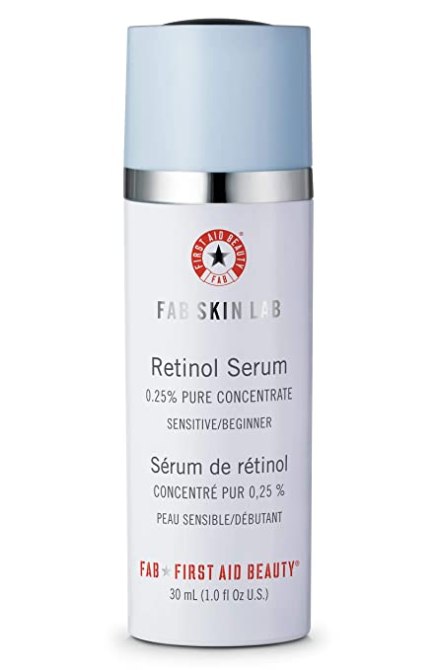While you’re stuck at home during quarantine, washing your hands and eating all your snacks, you might as well also add something to your beauty routine you’ve been meaning to try. Retinol for beginners might sound a little scary because you’re not sure how your skin will react. Will you get red? Flake? Have to try a few different options? Since you’re home anyway, now might just be the time to try.
You’ve probably heard a ton about retinoids, the umbrella name for all vitamin-A derivatives like retinol. Generally speaking, retinoids are stronger, often prescription-strength and retinol is over-the-counter and can take a little longer to work. That doesn’t mean one is better than the other. In fact, if you’re a newbie, it’s a good idea to start with a lower strength and build up as you go.
What can retinoids do for your skin? Well, almost everything. Retinols work by speeding up cell turnover through chemical exfoliation or put simply, sloughing away dead skin cells. This can lead to reduced acne, fewer fine lines and wrinkles and a more even skin tone. Retinoids work by enhancing collagen production, smoothing out the skin reducing hyperpigmentation. Did we say magic? Magic. But there are a few things all newbies should keep in mind before getting into a retinol journey.
Start with something gentle
One of the biggest mistakes people make is using a product too strong, too often. Start slow using a pea-sized amount every other night or every third night. Look for OTC retinols that also contain skin-calming ingredients, such as peptides and hyaluronic acid.
Image: Sephora.
If your skin is super sensitive, try an alternative
Have ultra-dry or really sensitive skin? Give a retinol alternative a shot. Many find them just as effective thanks to innovative ingredients and plant-based technology. Bakuchiol is one of the most popular ingredients, derived from the seeds and leaves of psoralea corylifolia, better known as the babchi plant.

Biossance.
Remember not to mix it with these ingredients
While you’re on your retinol journey, there are a few skincare products not to use at the same time or you’ll risk skin irritation and even lower the retinol’s effectiveness. Some of those include acne medicines like salicylic acid benzoyl peroxide, and alpha and beta hydroxy acids.
You might flake, but it’ll be worth it
Even if you’re really careful, your skin might flake a bit. You’ve heard about the “retinol scaries.” As long as it doesn’t burn and it’s not too intense, the flakes should subside in 2-3 weeks. Make sure you’re moisturizing (and using an SPF as always) and reducing the frequency if it’s too intense. Trust us—it’s worth the gorgeous skin underneath.
Our mission at STYLECASTER is to bring style to the people, and we only feature products we think you’ll love as much as we do. Please note that if you purchase something by clicking on a link within this story, we may receive a small commission of the sale and the retailer may receive certain auditable data for accounting purposes.

